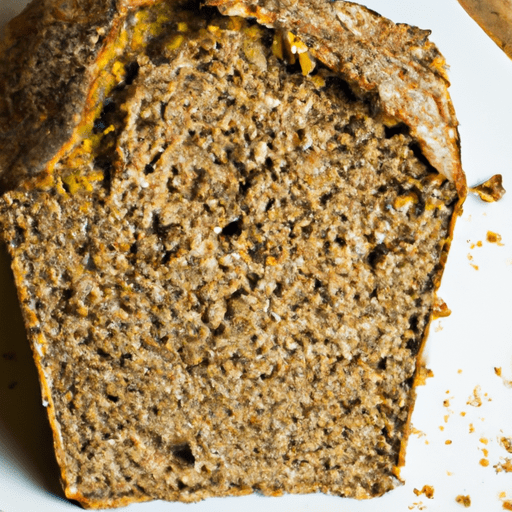The Wonderful World of Sprouted Grain Bread
If you’re a health-conscious individual or someone looking to explore new and exciting flavors in the world of bread, then you’re in for a treat. Sprouted grain bread is a rising star in the baking world, gaining popularity for its unique taste, versatility in cooking, and impressive nutritional profile. Let’s dive into the marvelous world of sprouted grain bread and discover what makes it so remarkable.
Taste that Delights the Palate
Sprouted grain bread offers a distinct flavor that sets it apart from traditional bread. It boasts a mildly sweet and nutty taste, with a hint of earthiness that adds depth to every bite. The process of sprouting activates enzymes, resulting in a smoother and more complex flavor compared to its non-sprouted counterparts. It’s a delightful departure from ordinary bread and can elevate any recipe it’s used in.
Unleashing Culinary Creativity
From simple sandwiches to complex culinary creations, sprouted grain bread unleashes a world of culinary possibilities. Its hearty texture and robust taste make it ideal for both sweet and savory recipes. Toast it to perfection and top it with avocado and fresh tomatoes for a satisfying breakfast or lunch. Crumble it into breadcrumbs for a gluten-free alternative in your favorite recipes. Use it as a base for tasty French toast or turn it into indulgent bread pudding. With sprouted grain bread, your culinary creativity knows no bounds.
Nutritional Powerhouse
In addition to its delectable taste, sprouted grain bread packs a powerful punch when it comes to nutrition. The sprouting process increases the bread’s nutrient content and enhances its digestibility. Sprouted grains are easier for our bodies to break down and absorb, making the nutrients more readily available. Sprouted grain bread is often rich in fiber, vitamins, minerals, and antioxidants. It’s a wholesome choice for anyone seeking a nutrient-dense option to support a healthy lifestyle.
Rooted in Ancient History
The concept of sprouting grains can be traced back to ancient civilizations. Our ancestors recognized the benefits of sprouting as it enabled grains to unlock their full nutritional potential. This technique was particularly prominent in the Middle East and Mediterranean regions. Today, sprouted grain bread has reemerged as a modern-day culinary treasure, combining ancient wisdom with contemporary tastes and health-conscious lifestyles.
Fun Fact: Bread That Comes Alive
When grains are sprouted, they undergo a transformation. Their dormant state turns lively as sprouts emerge, bursting with life and vitality. This process not only enhances the flavor and nutritional value but also adds an element of intrigue to sprouted grain bread. It’s like experiencing bread that has come alive, ready to nourish and delight your senses.
So, whether you’re a health enthusiast, a culinary adventurer, or someone curious about the magic of sprouted grain bread, give it a try. Embark on a journey that unites delicious flavors, excellent nutrition, and a fascinating culinary history. Sprouted grain bread is a testament to the wonders that can be achieved in the world of baking, and it’s waiting to be discovered by you.
Here are some interesting facts about sprouted grain bread:
Origin: Sprouted grain bread has roots in ancient civilizations such as Egypt and the Middle East, where sprouted grains were used thousands of years ago.
Common uses: Sprouted grain bread is commonly used as a healthier alternative to regular bread. It can be enjoyed on its own or used in sandwiches, toast, or any recipe that calls for bread.
Nutritional benefits: Sprouted grain bread is often considered more nutritious than regular bread. During the sprouting process, enzymes are activated, which can increase the availability of nutrients such as vitamins, minerals, and antioxidants. It may also be easier to digest and may have a lower glycemic index compared to bread made from unsprouted grains.
Unique properties: Sprouted grain bread is typically denser and moister than regular bread due to the sprouting process. It can have a nutty flavor and a slightly sweeter taste compared to traditional bread.
Historical significance: Sprouted grains have been used in various traditional diets around the world for centuries. The process of sprouting grains was believed to increase their nutritional value and make them easier to digest. In recent years, there has been a renewed interest in sprouted grain bread as part of the growing trend toward healthier eating.
It’s important to note that while sprouted grain bread can offer certain nutritional benefits, individual preferences and dietary needs may vary.




Use the share button below if you liked it.
It makes me smile, when I see it.